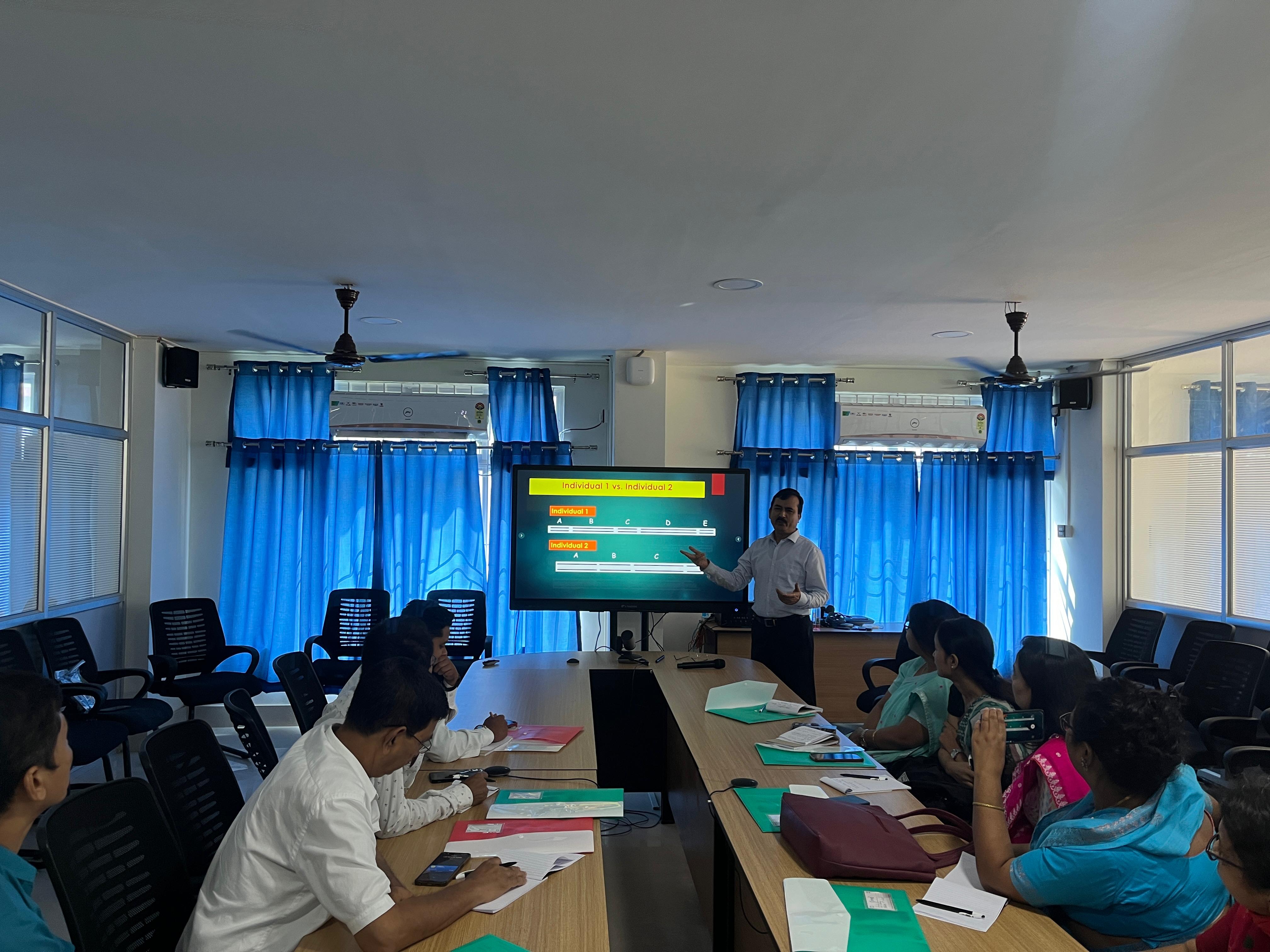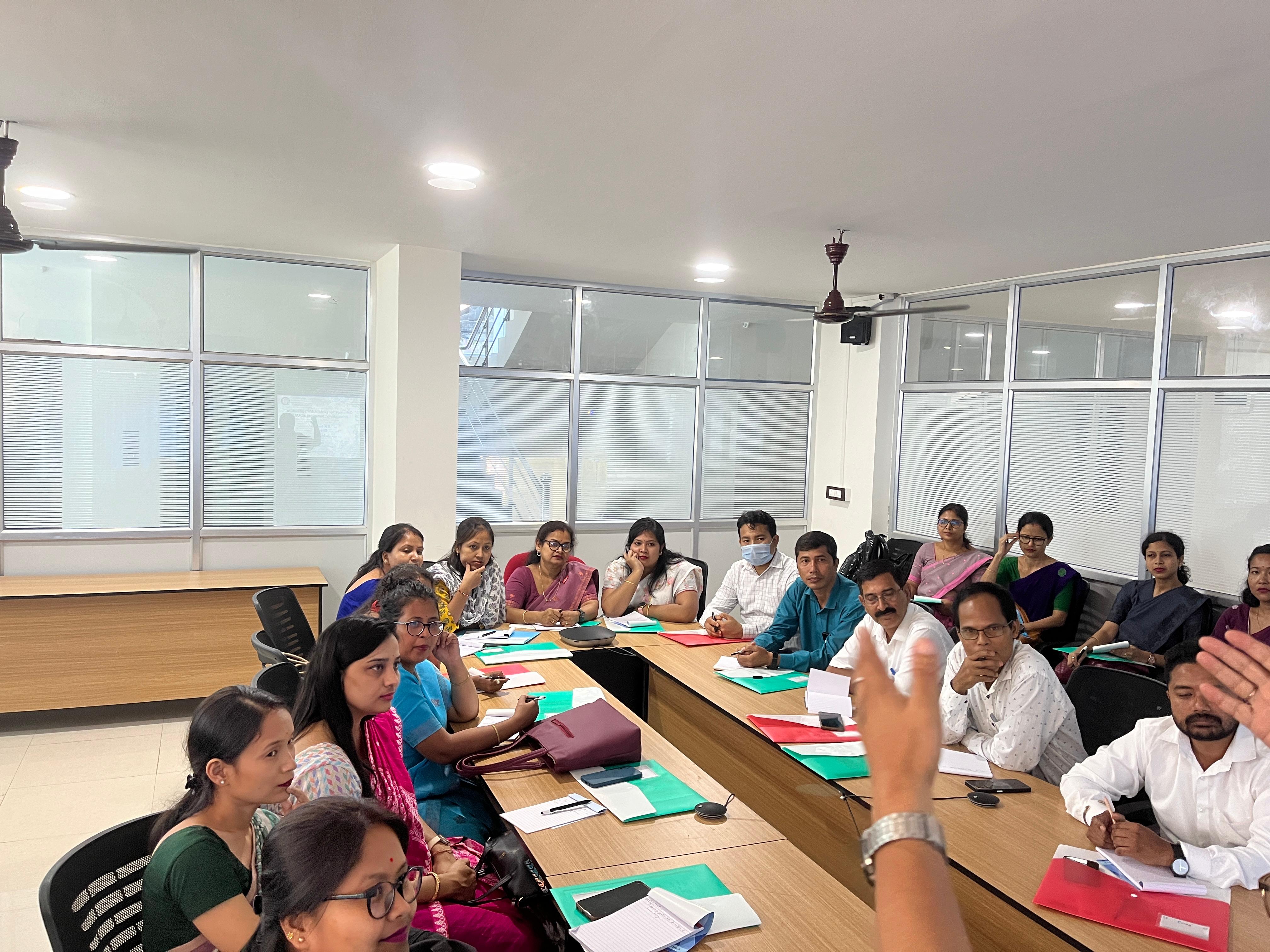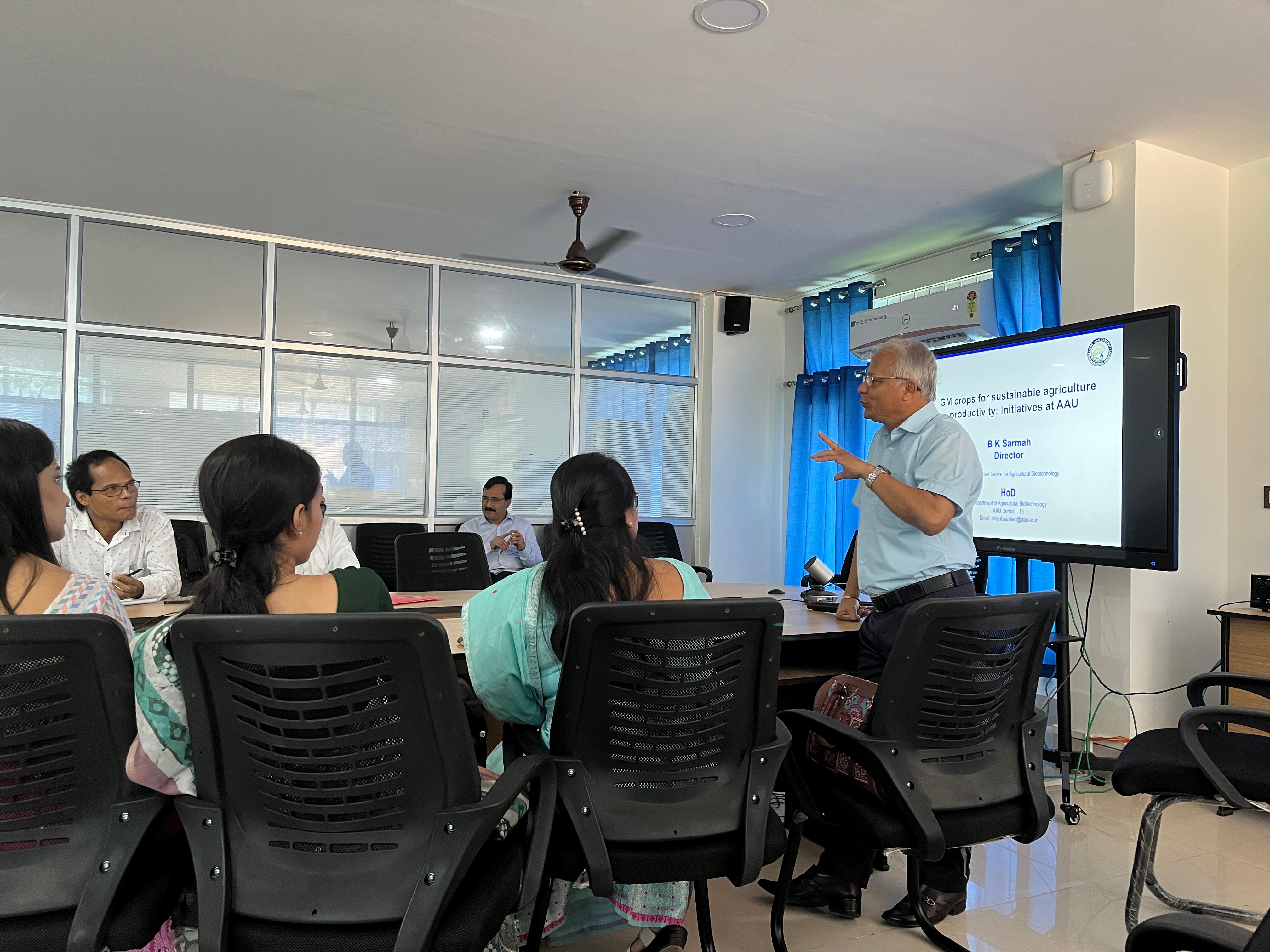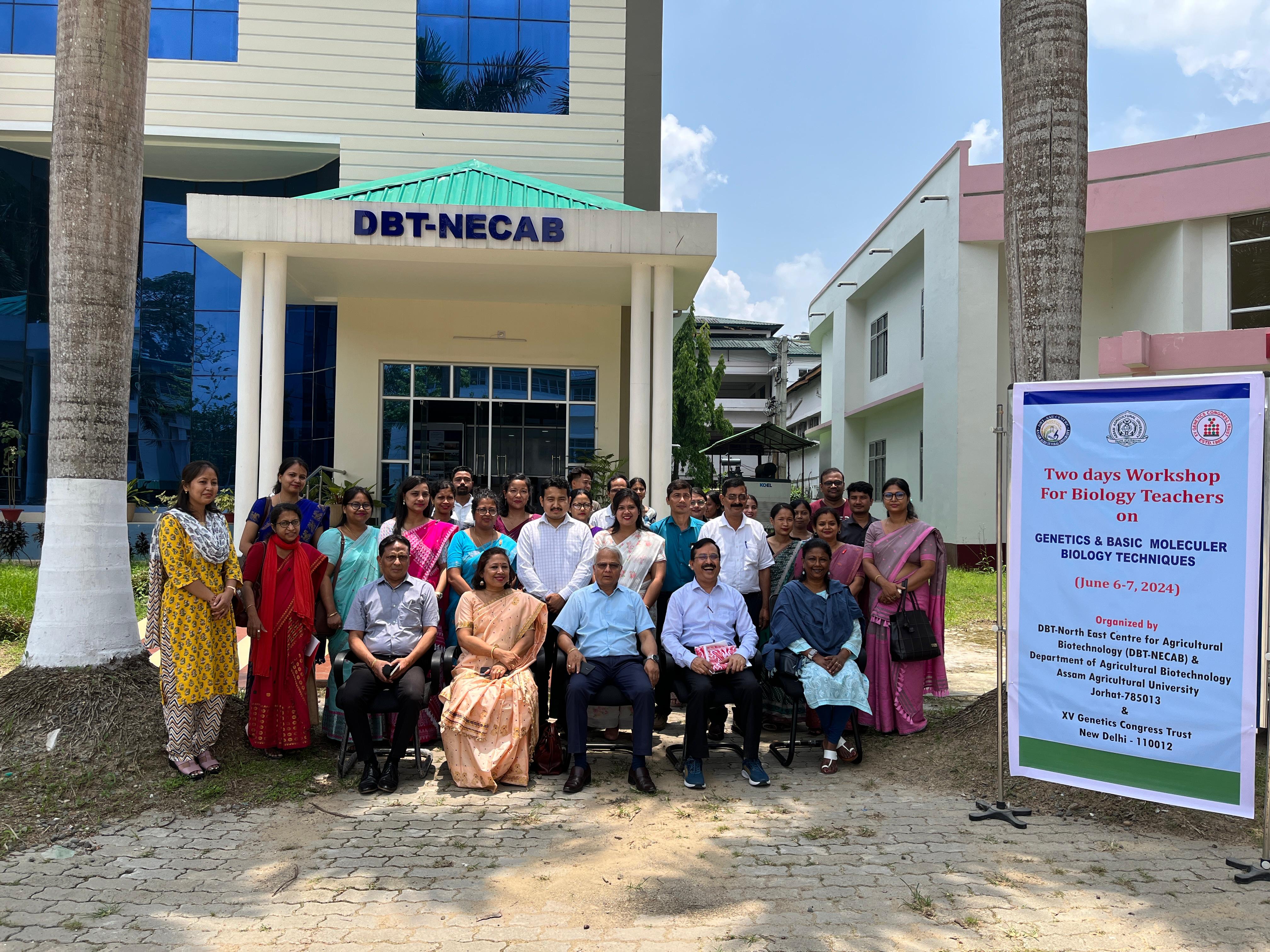Two-Day Workshop on “Genetics & Basic Molecular Biology Techniques”
Date: 10-06-24
Event Details:
Date: June 6-7, 2024Location: DBT-NECAB (New Building), Assam Agricultural University, Jorhat
The much-anticipated two-day workshop on “Genetics & Basic Molecular Biology Techniques” organized by DBT-North East Centre for Agricultural Biotechnology (DBT-NECAB), Department of Agricultural Biotechnology Assam Agricultural University, Jorhat 785013 & XV Genetics Congress Trust New Delhi – 110012 was successfully held on June 6-7, 2024, at the DBT-NECAB (New Building) at Assam Agricultural University (AAU), Jorhat. This workshop, specifically tailored for Postgraduate Biology teachers of Higher Secondary (HS) Schools within the Jorhat District, aimed to enhance their understanding and skills in the rapidly evolving field of molecular biology.
Inaugural Session
The event commenced on June 6, 2024, with an inaugural session at 10 AM. The session was graced by the presence of esteemed dignitaries- Director, DBT-NECAB, Dean, AAU, Jorhat, School inspector, Jorhat, and Dr. Akshay Talukdar and marked by their insightful lectures that set the tone for the workshop.
Professor Bidyut Kr. Sarmah, the Course Director and the Director of DBT-NECAB, welcomed the participants and highlighted the importance of continuous learning and adaptation in the field of genetics and molecular biology. He emphasized the role of these advanced techniques in contemporary biological research and education.
Following Professor Sarmah, the Dean of AAU, Jorhat, School inspector, Jorhat, and Dr. Akshay Talukdar addressed the crowd that underscored the university's commitment to fostering educational excellence and supporting initiatives that bridge the gap between theoretical knowledge and practical application. He commended the efforts of DBT-NECAB in organizing such a pivotal workshop and encouraged the participants to leverage the opportunity for professional growth.
Course Modules
The workshop's curriculum was meticulously designed to balance theoretical knowledge with practical skills, ensuring a holistic learning experience for the participants. The course modules were divided into two main segments: Theory Sessions and Experimental Sessions.
Theory Sessions:
Mendelian Genetics:
* Overview of Gregor Mendel’s principles of inheritance.
* Application of Mendelian genetics in modern biological research.
Molecular Biology/Genetic Engineering:
* Exploration of the foundational concepts of molecular biology.
* Insights into genetic engineering techniques and their applications in biological sciences.
Basics of Molecular Biology Techniques:
* Introduction to fundamental molecular biology methods.
* Discussion on the role of these techniques in scientific research and education.
Basic Bioinformatics:
* Basics of bioinformatics and its significance in analyzing genetic data.
* Tools and methodologies used in bioinformatics.
Experimental Sessions:
Genomic DNA Isolation:
* Techniques for extracting and purifying genomic DNA from various biological samples.
RNA Isolation and cDNA Synthesis:
* Methods for isolating RNA and synthesizing complementary DNA (cDNA) from RNA templates.
Polymerase Chain Reaction (PCR):
* Step-by-step guidance on setting up and performing PCR to amplify DNA sequences.
Plasmid DNA Isolation:
* Procedures for isolating plasmid DNA from bacterial cultures.
Restriction Digestion of DNA:
* Techniques for cutting DNA molecules at specific sequences using restriction enzymes.
Agarose Gel Electrophoresis:
* Protocols for separating DNA fragments based on size through agarose gel electrophoresis.
Each module was designed to provide the participants with both theoretical understanding and practical, hands-on experience, allowing them to apply these techniques in their educational settings effectively.
***Workshop Highlights***
Throughout the workshop, participants engaged in interactive sessions led by experts in the field. The hands-on experiments were particularly well-received, providing invaluable practical experience in the laboratory. These sessions were facilitated by experienced instructors who guided the participants through each step of the experimental procedures, ensuring a thorough understanding of the techniques involved.
Feedback from the participants was overwhelmingly positive, with many expressing appreciation for the opportunity to update their knowledge and skills in genetics and molecular biology. They highlighted the relevance of the workshop content to their teaching roles and the potential impact on their students' learning experiences.
Conclusion
The two-day workshop on “Genetics & Basic Molecular Biology Techniques” was a resounding success, offering a rich blend of theoretical insights and practical training. Organized under the expert guidance of Course Director Professor Bidyut Kr. Sarmah and Course Coordinator Dr. Priyabrata Sen, the event not only enhanced the professional capabilities of the Postgraduate Biology teachers in attendance but also strengthened the academic community’s commitment to advancing science education.
As the workshop concluded, there was a shared sense of accomplishment and enthusiasm among the participants and organizers alike. The knowledge and skills gained from this workshop are expected to significantly contribute to the enrichment of biology education in the Jorhat District and beyond.





